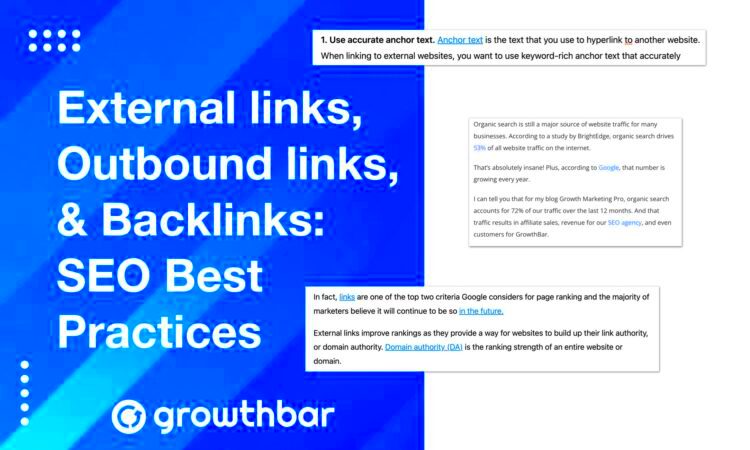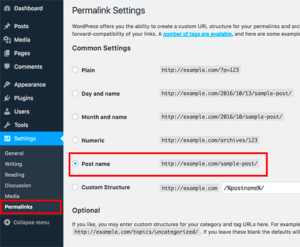When it comes to boosting your website’s visibility on search engines, external links play a significant role. But what exactly are external links? Simply put, they are hyperlinks that point to a different domain outside your own website. Utilizing them effectively can elevate your SEO strategy, enhance your content, and even improve your credibility. In this section, we’ll dive into how external links can influence your SEO efforts in WordPress and why you should consider integrating them into your posts.
Understanding the Importance of External Links

External links are crucial for several reasons, and they can have a profound impact on your site’s SEO performance. Here’s why you should pay attention to them:
- Improved Credibility: Linking to authoritative and reputable sources enhances the trustworthiness of your content. Search engines notice these links and may reward you for them.
- Enhanced User Experience: When you link to credible sources, you provide additional value to your readers. This can lead to longer visit durations and lower bounce rates, both of which are favorable for SEO.
- Search Engine Recognition: External links help search engines understand the context of your content. They signal that you’re sourcing valuable information, further helping identify your website’s relevance.
- Higher Referral Traffic: External links can also drive traffic back to your website if you’re linking to your own content from other sites, or if others link back to you after you link out.
So, to sum it up: external links are not just some random hyperlinks; they’re a fundamental aspect of a well-rounded SEO strategy. By linking to relevant, high-quality sites, you can create a more robust online presence for your WordPress site.
How External Links Affect Your Website’s Authority
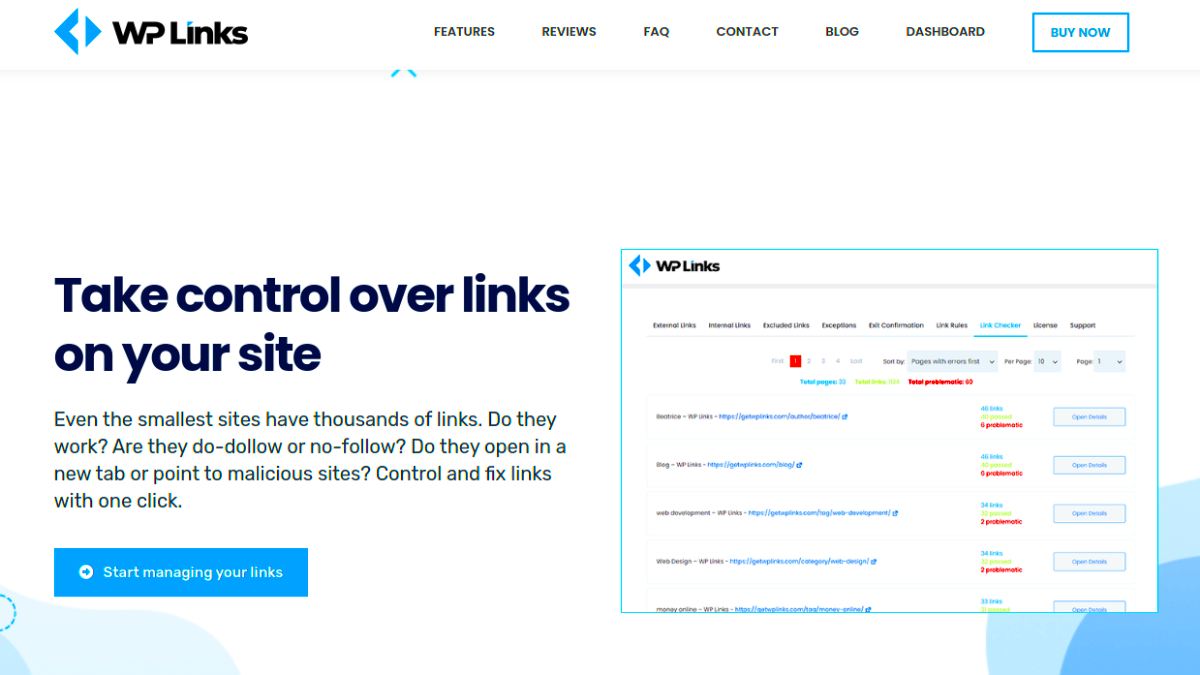
When it comes to building a robust online presence, external links play a pivotal role in shaping your website’s authority. So, how exactly do these links influence your site? Let’s break it down.
First off, think of external links as a way to vouch for your content. When you link out to reputable sites, you’re essentially saying, “Hey, I trust this information!” This trustworthiness can be a signal to search engines that your own content holds value. The key here is quality over quantity. A few links to high-authority sites can be far more beneficial than numerous links to low-quality sites.
Moreover, connecting with reputable sources can improve your PageRank, which is a critical component in Google’s ranking algorithm. Here are a few ways that external links can bolster your website’s authority:
- Building Credibility: Linking to established websites can enhance your credibility in the eyes of both users and search engines.
- Boosting Traffic: Quality external links can attract users from those sites, bringing new visitors to your page.
- Encouraging Backlinks: If you link to other reputable sites, they may return the favor, creating a mutually beneficial relationship.
In essence, well-placed external links won’t just improve your SEO; they’ll also create a more informative and trustworthy user experience. So, the next time you’re crafting your content, don’t overlook the potential power of external links!
Identifying Quality External Links
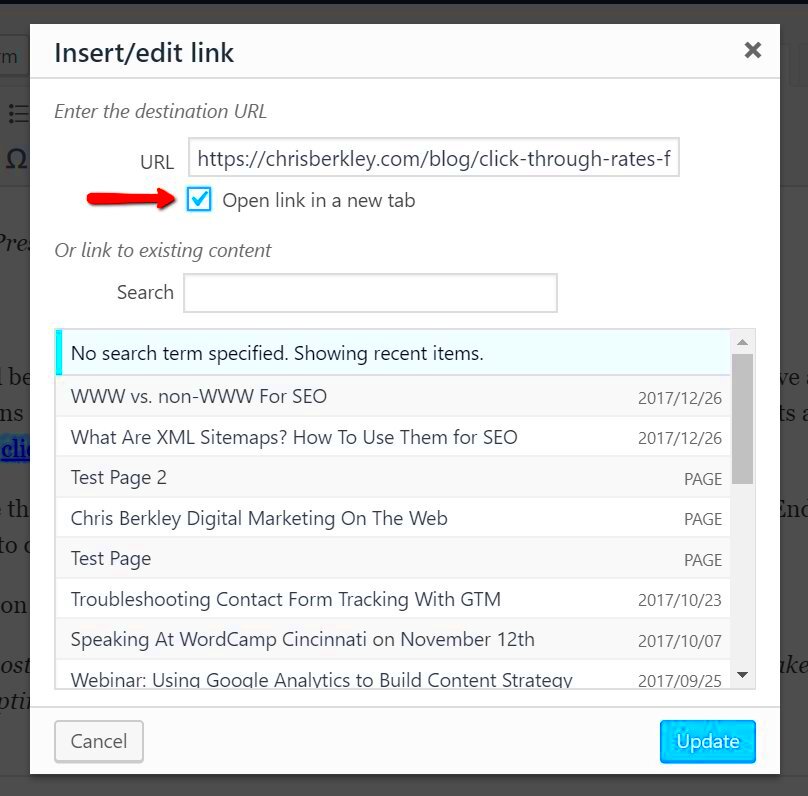
Alright, now that we know the importance of external links, let’s dive into how you can identify quality ones. Not all links are created equal, and linking to the wrong sites can do more harm than good. So, what should you look for? Here are some key criteria:
- Domain Authority: Check the domain authority scores. Tools like Moz or Ahrefs can help you determine if the site is trusted. Aim for sites with a score above 30.
- Relevance: Ensure the content of the link aligns with your topic. Relevant links will be more valuable to your audience and search engines.
- Traffic: Look for websites with decent traffic. This indicates that the site is popular and has been deemed valuable by users.
- Freshness: New content can indicate active engagement in the topic area. Be wary of linking to old, outdated sources.
- No Spammy Behavior: Avoid sites that engage in spammy practices, like excessive ads or clickbait titles.
By following these guidelines, you can curate a list of high-quality external links that will support your SEO efforts. Remember, establishing solid connections is about maintaining a good reputation online, which ultimately enhances your brand’s trustworthiness. When in doubt, take the time to do a bit of research—you’ll be glad you did!
How to Incorporate External Links into Your WordPress Posts
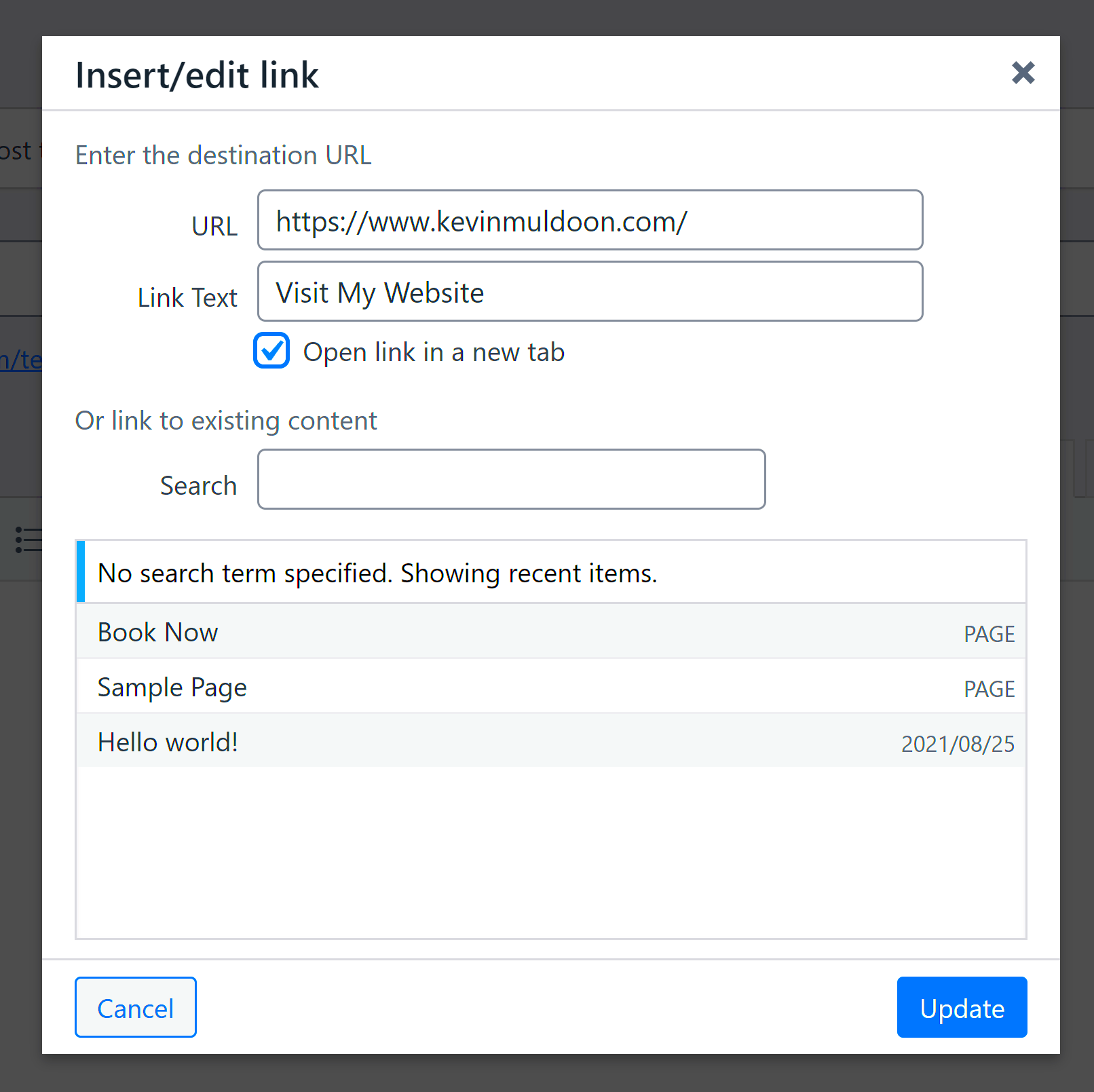
Incorporating external links into your WordPress posts is a fantastic way to boost your SEO and provide additional value to your readers. But how do you go about doing this effectively? Let’s break it down into simple steps.
First and foremost, when you’re writing your content, keep an eye out for opportunities to link to external sources. This could be statistics, referenced studies, helpful guides, or any resource that can add credibility to your article. Here’s a quick checklist:
- Identify Relevant Content: Search for articles, studies, and other resources that align with your topic.
- Check Authority: Ensure the sources you will link to are reputable and trustworthy; a simple Google search usually helps.
- Use Anchor Text Wisely: Instead of just inserting a URL, use descriptive anchor text that clearly indicates what the reader can expect by clicking on the link.
- Open Links in New Tabs: This can enhance user experience, as your website stays open while they explore the external source.
Once you have included the links, take a moment to review their placement to ensure they feel natural in the flow of the content. An external link should serve the reader’s interests, creating a seamless reading experience that adds value.
Best Practices for Linking Externally in WordPress
When it comes to linking externally in WordPress, following best practices can make a huge difference in how both users and search engines view your content. Here are some essential tips to keep in mind:
| Best Practices | Description |
|---|---|
| Limit Number of External Links | Be selective. Too many links can overwhelm your reader and dilute the impact of your content. |
| Use Nofollow Links Where Appropriate | If the external site does not deserve a SEO boost, apply the nofollow attribute to the link. |
| Ensure Link Relevance | The links you choose should directly relate to your post topic and enhance the reader’s understanding. |
| Check for Broken Links | Regularly audit your posts to keep your external links functioning; broken links can harm your SEO. |
| Update Links Regularly | As new information comes out, make sure to update the links to maintain credibility. |
By adhering to these best practices, you’ll create valuable and trustworthy content while enhancing your WordPress site’s SEO potential. Remember, the goal is to enrich your readers’ experience and establish your site as a credible source of information!
Monitoring and Managing Your External Links
When it comes to leveraging external links for SEO in your WordPress site, monitoring and management of these links is vital. Just like how you track your website’s performance, keeping an eye on your external links can drive greater results. Here are some practical steps to ensure you’re on top of things:
- Use Google Analytics: This is your go-to tool for tracking how well your external links are performing. You can set up Goals or Events to monitor clicks on these links. By analyzing this data, you can understand which links are driving traffic and which aren’t.
- Regular Audits: Conduct regular audits of your external links. Are they still relevant? Are they leading to 404 errors? Tools like Ahrefs or Screaming Frog can help in identifying broken links or those that need updating.
- Check Link Quality: Not all links are created equal. You’ll want to use sites that are high-quality and relevant to your niche. Low-quality links might harm your SEO more than they help. Keep a keen eye on your link’s reputation.
- Update and Refresh: Don’t hesitate to update old external links or replace them with better ones. Fresh, relevant links not only improve user experience but also boost your SEO efforts.
- Use Plugins: There are several WordPress plugins like Broken Link Checker that can help you manage links easily. Such tools can automate the process and save you loads of time.
By keeping your external links well-managed, you set yourself up not only for enhanced SEO performance but also for improved user engagement. Remember, a clean link profile is as essential as a good content strategy!
Common Mistakes to Avoid with External Links
Using external links is a powerful way to enhance your WordPress site’s SEO, but there are some common pitfalls you’ll want to avoid. Being aware of these mistakes can protect your site’s integrity and reputation. Let’s dive into some of these common missteps:
- Ignoring Relevance: Linking to external sites that are unrelated to your content can confuse search engines and frustrate your readers. Always choose links that are relevant to your topic.
- Overloading with Links: While it’s great to include external links, overloading your content can dilute its impact and overwhelm readers. A few well-placed links are far more effective than a long list.
- Not Using NoFollow Tags: If you’re linking to sites that are not credible or that you don’t want to endorse, use the NoFollow tag. This tells search engines not to pass on your site’s authority to the linked page.
- Failure to Monitor Links: As mentioned earlier, neglecting to monitor your external links can lead to broken links or outdated content. You run the risk of harming your site’s SEO and leaving a poor impression on users.
- Linking to Competitors: While linking to high-authority sites is vital, strategically linking to direct competitors might not be wise. It can divert traffic away from your site.
By steering clear of these common mistakes, you can make smarter decisions about your external link strategy. Remember, external links should enhance your site, not complicate it!
Conclusion: The Long-Term Benefits of External Linking for SEO
Incorporating external links into your WordPress content can significantly enhance your SEO strategy. By linking to reputable sites, you not only provide readers with valuable resources, but also signal to search engines that your content is well-researched and credible. Here are some key benefits of using external links in your SEO approach:
- Improved Credibility: Linking to authoritative sources boosts your website’s credibility and trustworthiness.
- Enhanced User Experience: Providing additional resources enriches the reader’s experience by allowing them to explore topics in-depth.
- Increased Visibility: External links can often lead to reciprocal linking opportunities, enhancing your site’s visibility across the web.
- Boosted Engagement: When you provide high-quality external resources, users are more likely to stay engaged with your content, reducing bounce rates.
- SEO Juice: Link to relevant, high-quality sites can improve your chances of being linked back, leading to potential traffic boosts.
By strategically integrating external links into your WordPress posts, you can cultivate a more robust SEO strategy. It’s essential to regularly audit your links to ensure they remain relevant and functional, considering that the web is in constant flux. Remember, the ultimate goal of SEO is not just to attract traffic but to build meaningful connections with your audience and encourage their return visits. Embrace external linking as a long-term investment in your site’s performance.

